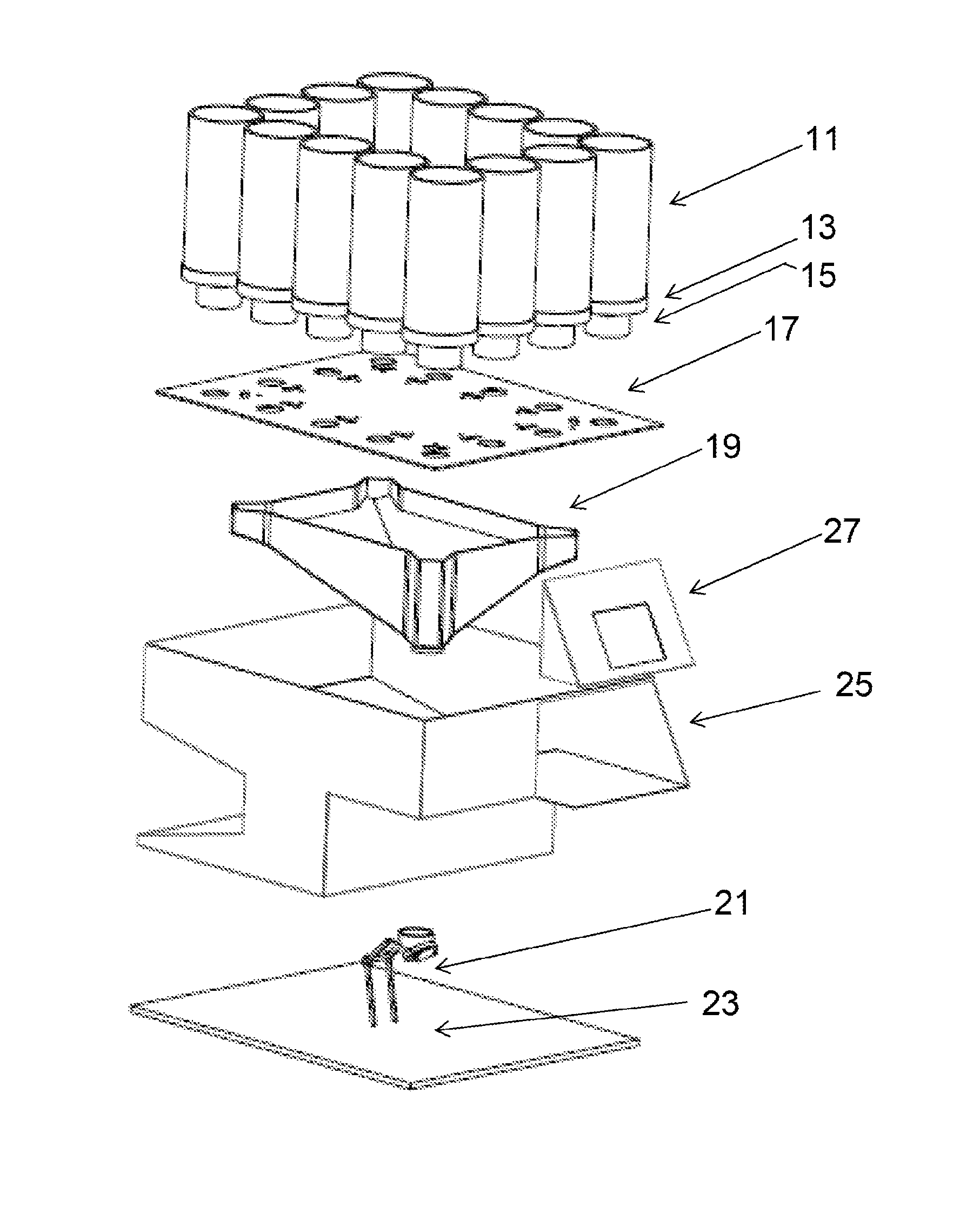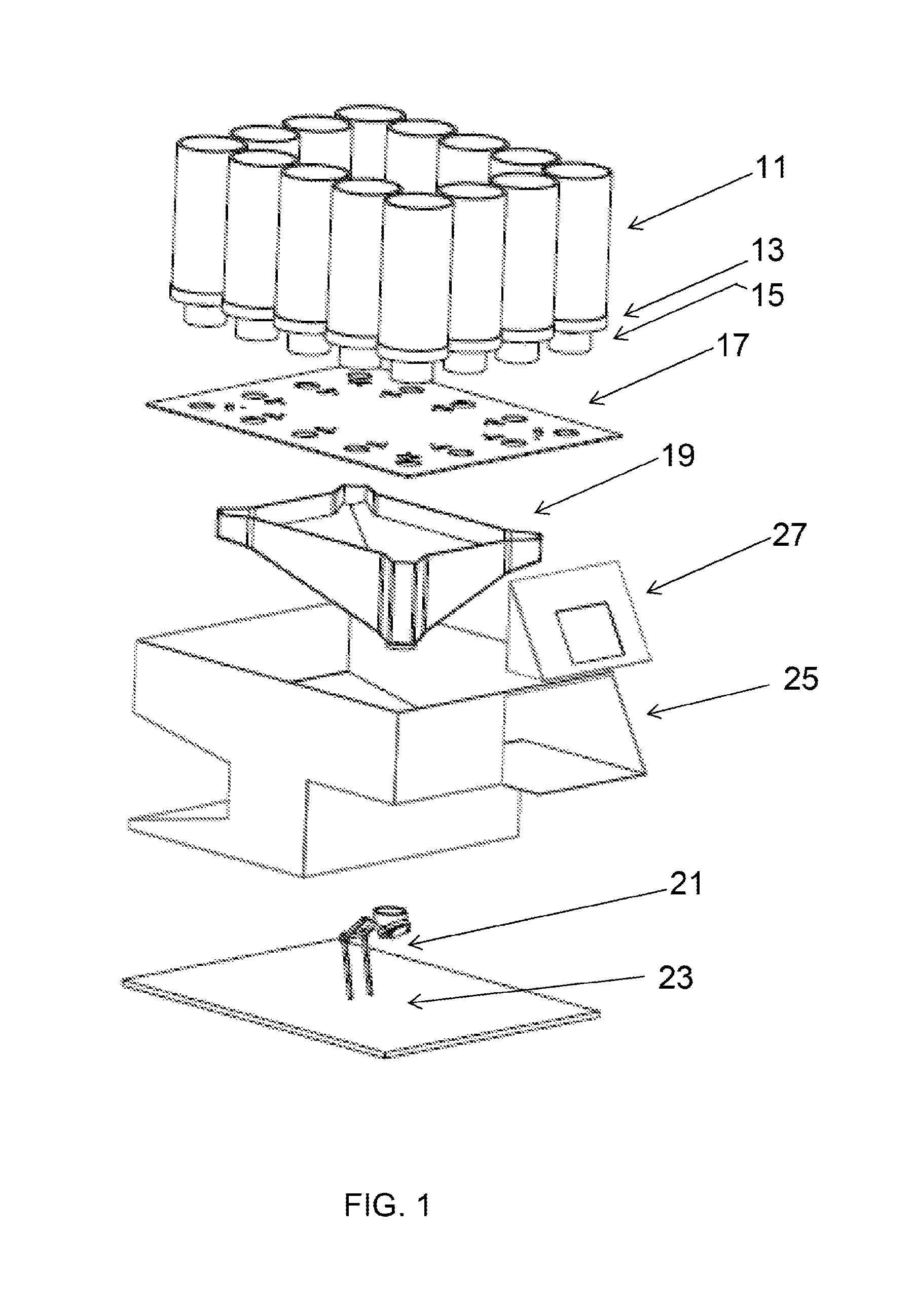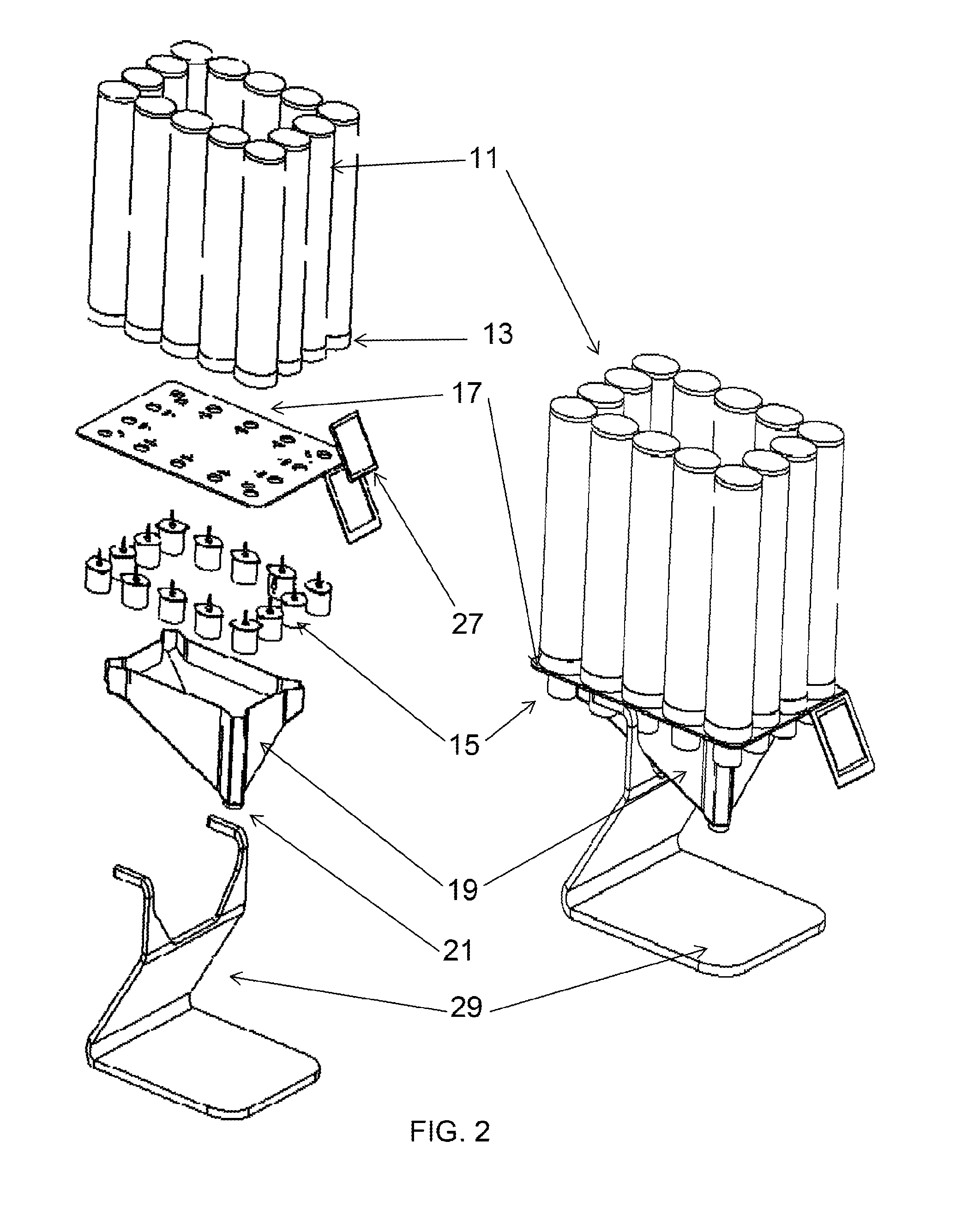Systems for custom coloration
a coloration system and hair technology, applied in the field of custom coloration systems, can solve the problems of difficult to predict the color, the actual color of the hair after coloring is different from the anticipated color, and the current method cannot accurately predict the hair color after coloring
- Summary
- Abstract
- Description
- Claims
- Application Information
AI Technical Summary
Benefits of technology
Problems solved by technology
Method used
Image
Examples
example 1
Tablet Compositions
[1395]Materials and Methods:
[1396]Tablets were formulated to provide a range of basic shades which can be combined to provide a custom coloring composition.
[1397]The ingredients were purchased at pharmaceutical or cosmetic grade, as applicable.
[1398]The color imparting agents were generally purchased from Jarocol.
[1399]The tablet ingredients (including the color imparting agents) were mixed together.
[1400]Prior to mixing, one or more of the tablet ingredients was optionally ground with a cutting mill (Fritsch Pulverisette 19, with an insert sieve of 250 micron) under operating conditions, so as to obtain a similar size distribution for all tablet ingredients. In a typical procedure, for a batch of 400 grams, ingredients were ground for about 2 hours at a power of 2,000 W, although longer times can be used for ingredients made of hard bulk material and / or having large initial size were eventually ground for up to 4 hours.
[1401]The obtained particles were then optio...
example 2
Tablet Coatings
[1422]The tablets prepared as described in Example 1 were, when desired, further coated, for instance, to enhance the tablet hardness, reduce the undesired oxygen and / or moisture penetration and prolong the shelf-life of the tablets.
[1423]The tablets were spray-coated using a perforated pan coater (Freund Vector, Laboratory LDCS Hi-Coaters®) with electropolished fully perforated pan 2.5 L. The coating solutions were generally sprayed using Schlick ABC spray gun at average inlet temperature of 74-77° C. and average exhaust temperature of 45-50° C. for up to 105 minutes, depending on the concentration of the coating solution, the spraying rate and the desired thickness. The thickness of the resulting coatings was assessed by cutting the tablet and measuring the thickness of the coating in the resulting cross section under an optical microscope (Olympus BX51). The reported average thickness is the mean of four measurements made on two tablets of the same batch. Alternati...
example 3
Tablet Properties
[1438]Coated and uncoated tablets prepared as described in Examples 1 and 2 were submitted to numerous tests to assess certain properties.
[1439]The mechanical properties were measured using a tablet hardness tester (HT-50P), a friability test apparatus (FTA-20), and a disintegration tester (TD-20S), all of Thermonik Campbell Electronics. These properties were assessed at various time points following the preparation of the tablets.
[1440]The stability of the tablets was assessed under normal and accelerated conditions. The accelerated conditions were produced by incubating the tested tablets in an environmental chamber (KBF115, Binder). Tablets were removed from the environmental chamber after different durations and their performance with time were compared to baseline values established closely following tabletting and / or coating (time point 0). Unless otherwise indicated, the environmental chamber maintained a stable temperature of 25° C. and relative humidity of ...
PUM
 Login to View More
Login to View More Abstract
Description
Claims
Application Information
 Login to View More
Login to View More - R&D
- Intellectual Property
- Life Sciences
- Materials
- Tech Scout
- Unparalleled Data Quality
- Higher Quality Content
- 60% Fewer Hallucinations
Browse by: Latest US Patents, China's latest patents, Technical Efficacy Thesaurus, Application Domain, Technology Topic, Popular Technical Reports.
© 2025 PatSnap. All rights reserved.Legal|Privacy policy|Modern Slavery Act Transparency Statement|Sitemap|About US| Contact US: help@patsnap.com



